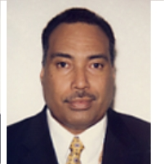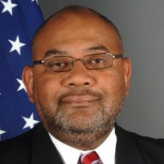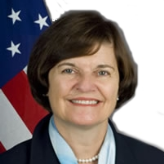Solomon Islands
European explorers couldn’t find the Solomon Islands for more than 200 years after the first explorer visited it. However, during World War II, the Solomons couldn’t hide. Numerous naval, air, and ground battles took place in and around Guadalcanal, now the capital. One Japanese destroyer almost changed history when it sliced in half the PT boat of future American President John Kennedy. He survived and the Americans prevailed, wresting Guadalcanal from the stubborn Japanese and starting them on their long, slow slide to defeat. Administered as a colony by the British, upon independence the Solomons inherited a fractured population of almost 100 different tribal groups and languages, almost no modern development, and the worst per capita malaria rates in the world. The government eventually collapsed, as fighting between different groups broke out, prompting Australia and others to send in peacekeepers. Now, several years into the strife, it is still not clear when a stable Solomon Islands will emerge from the turmoil.
Location: The Solomon Islands are southeast of Papua New Guinea and north of Vanuatu. The total area is 28,450 square kilometers. The group consists of a double chain of six large continental islands and hundreds of smaller ones. The islands are rugged, heavily forested, and malaria infested.
One of the key battles of World War II was the struggle for Guadalcanal, which began August 7, 1942. This was the first time that U.S. forces captured territory occupied by Japanese troops. Japan tried repeatedly to wrest control back from the Americans. After several attempts on land and several battles at sea, the Japanese were pushed out after seven months of fighting.
In 2007 the United States imported goods worth $1,117,000 from the Solomon Islands. Exports to the Solomon Islands in 2007 came to $5,438,000, much of it in telecommunications equipment, semiconductors, and fish. The 2008 foreign aid request for the Solomon Islands was for $150,000 for police training. The United States supports the RAMSI effort.
Robert W. Fitts 9/11/03-10/2/06 (also accredited to Papua New Guinea and Vanuatu)
 Beck, Colin
Beck, Colin
Solomon Islands Missions to the United Nation
Suite 8008
800 2nd Avenue
New York, N.Y. 10017-4709
Tel: 212-599-6192; 212-599-6193
Fax: 212- 661-8925
Email: simny@solomons.com
- Table of Contents
- News
- Overview
- Basic Information
- History
- Newspapers
- History of U.S. Relations with Solomon Islands
- Current U.S. Relations with Solomon Islands
- Where Does the Money Flow
- Controversies
- Human Rights
- Debate
- Past Ambassadors
- Ambassador to the U.S.
- Embassy Web Site in the U.S.
- Comments
- Leave a comment
U.S. Ambassador to Solomon Islands

Teddy B. Taylor, a career member of the Senior Foreign Service holding the rank of Minister Counselor, was sworn in as the U.S. Ambassador to Papua New Guinea, Solomon Islands and Vanuatu on September 21, 2009. In a move sure to win hearts and minds in Papua New Guinea, Taylor and his wife, fellow Foreign Service officer Antoinette Corbin-Taylor, have partnered with her college sorority, Delta Sigma Theta, in a project to develop mobile library services in and for Papua New Guinea. Born circa 1953 in Washington, DC, Taylor graduated High School in the D.C. public schools, earned his B.A. in Political Science at Florida A&M University in 1975, and is a brother in the Omega Psi Phi fraternity.
Previous U.S. Ambassador to Solomon Islands

European explorers couldn’t find the Solomon Islands for more than 200 years after the first explorer visited it. However, during World War II, the Solomons couldn’t hide. Numerous naval, air, and ground battles took place in and around Guadalcanal, now the capital. One Japanese destroyer almost changed history when it sliced in half the PT boat of future American President John Kennedy. He survived and the Americans prevailed, wresting Guadalcanal from the stubborn Japanese and starting them on their long, slow slide to defeat. Administered as a colony by the British, upon independence the Solomons inherited a fractured population of almost 100 different tribal groups and languages, almost no modern development, and the worst per capita malaria rates in the world. The government eventually collapsed, as fighting between different groups broke out, prompting Australia and others to send in peacekeepers. Now, several years into the strife, it is still not clear when a stable Solomon Islands will emerge from the turmoil.
Location: The Solomon Islands are southeast of Papua New Guinea and north of Vanuatu. The total area is 28,450 square kilometers. The group consists of a double chain of six large continental islands and hundreds of smaller ones. The islands are rugged, heavily forested, and malaria infested.
One of the key battles of World War II was the struggle for Guadalcanal, which began August 7, 1942. This was the first time that U.S. forces captured territory occupied by Japanese troops. Japan tried repeatedly to wrest control back from the Americans. After several attempts on land and several battles at sea, the Japanese were pushed out after seven months of fighting.
In 2007 the United States imported goods worth $1,117,000 from the Solomon Islands. Exports to the Solomon Islands in 2007 came to $5,438,000, much of it in telecommunications equipment, semiconductors, and fish. The 2008 foreign aid request for the Solomon Islands was for $150,000 for police training. The United States supports the RAMSI effort.
Robert W. Fitts 9/11/03-10/2/06 (also accredited to Papua New Guinea and Vanuatu)
 Beck, Colin
Beck, Colin
Comments
U.S. Ambassador to Solomon Islands

Teddy B. Taylor, a career member of the Senior Foreign Service holding the rank of Minister Counselor, was sworn in as the U.S. Ambassador to Papua New Guinea, Solomon Islands and Vanuatu on September 21, 2009. In a move sure to win hearts and minds in Papua New Guinea, Taylor and his wife, fellow Foreign Service officer Antoinette Corbin-Taylor, have partnered with her college sorority, Delta Sigma Theta, in a project to develop mobile library services in and for Papua New Guinea. Born circa 1953 in Washington, DC, Taylor graduated High School in the D.C. public schools, earned his B.A. in Political Science at Florida A&M University in 1975, and is a brother in the Omega Psi Phi fraternity.
Previous U.S. Ambassador to Solomon Islands








Comments